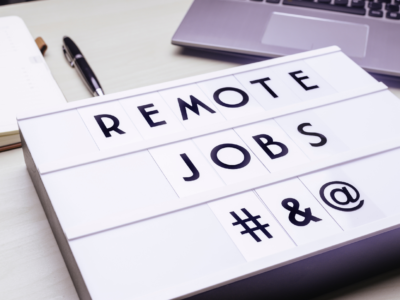The latest research from phone giant Vodafone has found that 23% of employees in the UK feel ‘unproductive at work’. For those born after 1996 (also known as Generation Z), this figure rises to a worrying 28%.
The report named ‘Power of Productivity’, commissioned by Vodafone and produced by the LSE, surveyed 3,000 UK employees in order to understand how to boost productivity and drive the UK’s economy at this time of economic uncertainty. And the numbers are alarming. Twenty-eight percent equates to roughly seven million UK employees who feel like they’re wasting time at work.
It may not be so surprising that the younger generation feel like they’re wasting their time even more so, with 28% scoring themselves between 0 and 6 on a productivity scale of 10. It’s likely that they’re in junior roles that aren’t necessarily challenging them. However, with today’s advanced digital economy, the opportunities are there to be taken – perhaps it’s a matter of confidence as well as awareness.
Though it may be easy to blame the employee for a lack of productivity, I rather think we should be looking at how we approach the workplace in this day and age. With advances in technology coming thick and fast, there really is no excuse for not adapting and changing to the shifting environment.
To quote Tony Bailey, Head of Regional Business, Vodafone UK, “Technology can help strike this balance while playing a critical role in fostering collaboration and teamwork, supporting mobility and unlocking people’s productivity potential.”
But it isn’t.
However, the report wasn’t all doom and gloom, and tried to redraw the focus on areas in which we can increase productivity. Areas such as…
Working with Digital
One of the main suggestions to boost productivity was to reevaluate how businesses create a digital workplace. Taken from the report, 38% of employees stated that they think their workplace should be equipped with the latest tech, with 42% claiming that the lack of technology is preventing them doing their jobs efficiently.
Shifting over to automation, AI, or even just using new tools can help alleviate the more mundane and menial of tasks, freeing employees up for more creative or challenging jobs. This also requires employers to train their staff in the latest tech and ensure that they are using best practices.
A culture of continued learning and tech adoption will be sure to increase not only productivity but work-satisfaction.
Where to Work
Flexible working comes with a whole heap of advantages. Increased productivity, reduced rental costs and better talent retention, yet most companies are still wary of taking the plunge. Almost 60% of those surveyed said that they spent most of their time tied to their employer’s office. But with the opportunities to work from home, shared spaces, or customer of project sites bolstered by tech, perhaps this isn’t the most productive way or working.
Conversely, 74% of Generation Z respondents claimed that for them to be most productive they required a team around them. Only 60% of baby-boomers agreed. So whilst offering opportunities to work remotely may help in some cases, it’s still extremely important for employees to be able to collaborate with colleagues and develop a strong team ethic.
Almost half of workers do think that they spend too much time in unnecessary meetings, and 42% claimed that workplace stress was preventing them from excelling.
So in summary:
- Streamline processes
- Build strong teams
- Employ the latest technology
- Stop having so many meetings
- Make work less stressful
And a productive workplace you will make.
[Tweet “1 in 4 Employees are ‘Unproductive’ at Work”]
[subscribe2]









